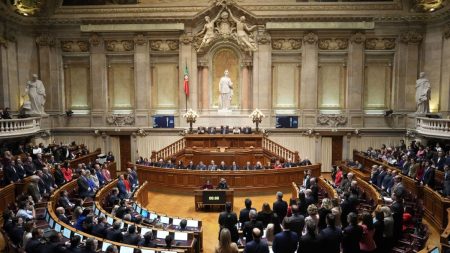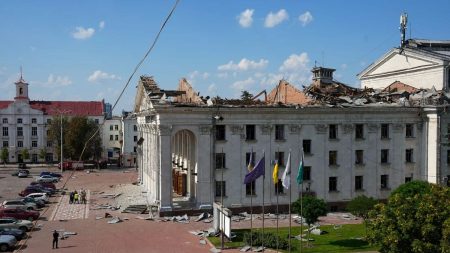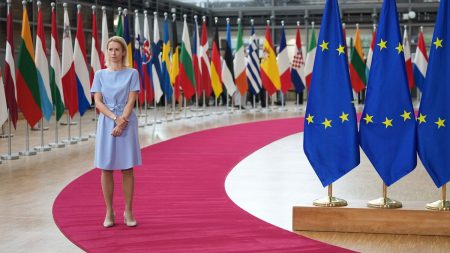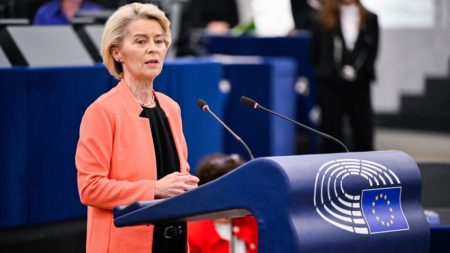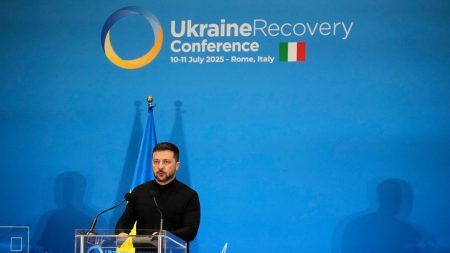TikTok, the popular Chinese-owned social media platform, is facing a growing wave of scrutiny in Europe, particularly regarding its influence over electoral processes. As Irish voters prepare for a significant election, allegations have surfaced that TikTok has been spreading disinformation related to the electoral process. An investigation commissioned by the international NGO Global Witness revealed concerning findings, suggesting that TikTok may be failing to effectively moderate and filter false claims. This scrutiny follows a surprising electoral outcome in Romania, where little-known ultranationalist candidate Călin Georgescu gained unexpected traction in the first round of the presidential elections, and some EU lawmakers are pointing to TikTok’s role in this development.
Global Witness executed a series of tests on TikTok’s ability to identify and eliminate deceptive political advertisements, with a specific focus on the Irish electoral context. The organization created 14 videos that contained disinformation about the electoral process and attempted to get these approved as paid adverts in both English and Irish. Disconcertingly, several of these videos were approved despite using coded language and symbols—referred to as ‘algospeak’—to navigate TikTok’s automated moderation systems. Ultimately, three ads in English and eight in Irish managed to gain approval before Global Witness opted to withdraw them, although the alarming fact remains that they were sanctioned for publication in the first place.
In response to these findings, TikTok has asserted that none of the disinformation ads ever actually went live on the platform, arguing that the majority had been satisfactorily rejected during the initial moderation phase. The company reiterated its firm policy against political advertising on TikTok and pointed to the launch of an in-app election center intended to provide users with genuine information about electoral matters. However, Global Witness remarked on TikTok’s ongoing struggles, especially highlighting the platform’s inadequate capacity to manage content in Irish, as it does not currently employ moderators fluent in the language—a crucial shortcoming given the recent electoral context.
The urgency of the Irish election is underscored by the backdrop of changing political dynamics, particularly the end of a historic three-way coalition and the rise of Sinn Féin, which won the popular vote in 2020. The election features current Taoiseach Simon Harris of Fine Gael, known for his robust presence on TikTok, alongside major rivals like Micheál Martin of Fianna Fáil and Mary Lou McDonald of Sinn Féin. Harris has gained the nickname ‘TikTok Taoiseach’ owing to his significant following on the platform, illustrating how political figures are increasingly leveraging social media to connect with younger, tech-savvy voters. This trend underscores the challenges faced by regulators trying to oversee content on platforms that are gaining traction as essential political tools.
At the European level, TikTok is not only grappling with the repercussions of alleged disinformation related to the Irish election but is also under scrutiny for its broader implications concerning child protection and content moderation compliance with legislation such as the Digital Services Act (DSA). This has sparked concerns about the platform’s ability to mitigate risks associated with young users’ exposure to potentially harmful content, forcing TikTok to navigate a complex legislative landscape while addressing ethical questions posed by its operational model and unchecked influence over electoral engagement.
Finally, the European Commission is taking these issues seriously, with President Ursula von der Leyen acknowledging the potential dangers of TikTok and not ruling out the possibility of an outright ban on the platform in the future. The situation illustrates a multifaceted challenge as lawmakers attempt to balance fostering a digital environment conducive to political dialogue while safeguarding electoral integrity. The urgency surrounding TikTok’s role in elections highlights the pressing need for regulations that adapt to the rapidly evolving digital landscape in which social media is increasingly intertwined with political processes, raising significant questions about accountability, reliability, and the future of online discourse in the context of democracy.






